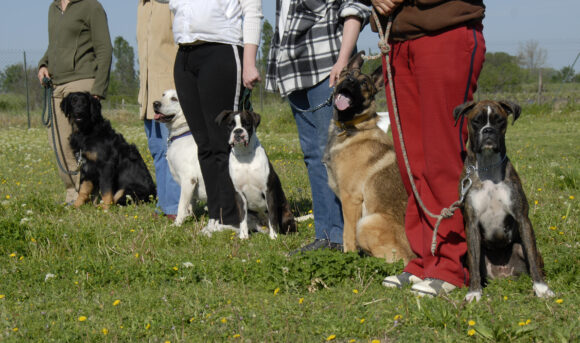US insurers paid out $1.12 billion in dog-related injury claims in 2023 according to the Insurance Information Institute (Triple-I) and State Farm.
The number of dog bite and related injury claims was 19,062 in 2023, an increase of more than 8% from 2022 and a 110% increase over the past decade, with the total cost of claims at $1.12 billion, reported Janet Ruiz, director of strategic communications at the Triple-I.
On a positive note, the average cost per claim decreased from $64,555 in 2022 to $58,545 in 2023, she said, noting that California, Florida and Texas had the most claims. “Education and training for owners and pets is key to keep everyone safe and healthy.”
“As the largest property insurer in the country, State Farm is committed to educating people about pet owner responsibility and how to safely interact with dogs,” said Heather Paul, media relations specialist at State Farm. “It is important to recognize that any dog, including ones that are in the home, can bite or cause injury. Every dog has a unique personality and while breed or type may dictate how they look, how a dog reacts isn’t guaranteed by those qualities.”
Triple-I is marking National Dog Bite Prevention Week (April 7-13) to promote awareness and education for owners and pets. During National Dog Bite Prevention Week, a coalition of veterinarians, animal behavior experts and insurance representatives are urging people to understand the risks dog bites pose to people and other pets, and steps to prevent bites from happening. The coalition — which includes the American Veterinary Medical Association (AVMA), State Farm, Triple-I, and dog trainer Victoria Stilwell Positively — will be hosting a Facebook Live event on Thursday, April 11, at 1 pm Eastern Time.
The event, which will be moderated by certified animal behavior consultant and broadcaster Steve Dale, will discuss training tips to help prevent bites, how to safely socialize your dog after a period of isolation, and how to recognize the warning signs that a dog may bite. In addition, the coalition will be releasing the latest dog-related injury claims data. The panelists will also be answering questions submitted by the public during the event.
The National Dog Bite Prevention Week Coalition provides the following tips to prevent dog bites:
- Make sure your pet is healthy. Not all illnesses and injuries are obvious, and dogs are more likely to bite if they are sick or in pain. If you haven’t been to the veterinarian in a while, schedule an appointment for a checkup to discuss your dog’s physical and behavioral health.
- Prioritize proper socialization: Socialization involves gently introducing your dog to a range of settings, people, and other animals, and ensuring these experiences are positive. Whether it’s quietly observing the bustle of a park, meeting new people in a controlled manner, or getting used to the sights and sounds of your neighborhood, each positive experience builds confidence. Socialization should be a lifelong journey, and not just for the puppy phase.
- Take it slow. If your dog has been mainly interacting with your family since you brought them home, don’t rush out into crowded areas or dog parks. Try to expose your dogs to new situations slowly and for short periods of time, arrange for low-stress interactions, and look for behaviors that indicate your dog is comfortable and happy to remain in the situation.
- Understand your dog’s needs and educate yourself in positive training techniques. Recognize your dog’s body language and advocate for them in all situations. This will give your dog much needed skills and help you navigate any challenges you might encounter.
- Be responsible about approaching other people’s pets. Ask permission from the owner before approaching a dog and look for signs that the dog wants to interact with you. Sometimes dogs want to be left alone, and we need to recognize and respect that.
- Make sure that you are walking your dog on a leash and recognize changes in your dog’s body language indicating they may not be comfortable.
- Always monitor your dog’s activity, even when they are in the backyard at your own house, because they can be startled by something, get out of the yard and possibly injure someone or be injured themselves.
Source: Insurance Information Institute
Topics
Trends
USA
Claims
Interested in Claims?
Get automatic alerts for this topic.


